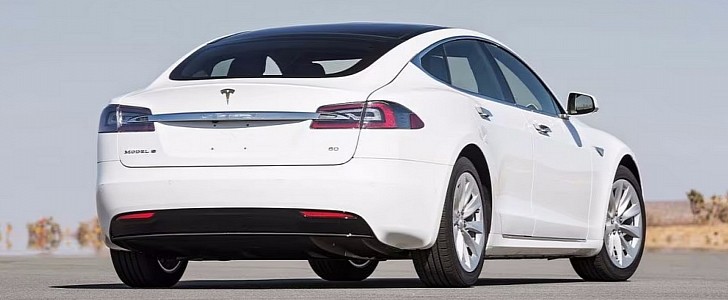The car has been sold twice since. The third owner has had the vehicle for a few months and had this vehicle involved with the MCU recall. If you don’t remember this episode, Tesla made the MCU with a small eMMC 8 GB flash memory card. Due to unnecessary logging, this component would fail after three or four years.
That demanded a replacement. Tesla would charge up to $4,000 to perform it as soon as the component was out of warranty. When the National Highway Traffic Safety Administration (NHTSA) ruled it was a recall object, Tesla’s former vice president for legal affairs, Al Prescott, said these computers were wear parts to try to dodge responsibility. It did not work, and Tesla is now having to replace the computers.
That was the case with this 2013 Model S. The issue is that Tesla not only replaced the MCU with a new unit. It also remotely software-locked the car to be a 60 again, despite the 90-kWh battery pack. All of a sudden, this Model S owner lost 80 miles of range. After the owner complained about that, Tesla said it could restore the previous range for a $4,500 fee. Hughes said the right way to frame this fee is to consider it ramson.
If Tesla does not fix this soon, this Model S owner may take the company to court to get back the range and capability their car had before the company decided to cap the battery pack it voluntarily gave it years after the service was done. We’ll talk to consumer protection attorneys to learn about the legal implications this may have.
Regardless of the legal implications, Hughes stressed that he shared the story so that the EV maker could “do better on this and make it right.” Anticipating the negative comments from Tesla investors disguised as fans, he added that he did not make this public to hurt the company. According to the Tesla hacker, the truth is that he hates “seeing Tesla derail themselves with this kind of nonsense.”
Tesla really fires me up sometimes.????????
— Jason Hughes (@wk057) July 25, 2022
I have a customer who's the ~3rd owner of a 2013 Model S 60.
At some point years ago the battery pack was swapped under warranty with a 90 pack. It wasn't software limited. It was effectively made into a 90 by Tesla.
Years went by.
(1/*)






